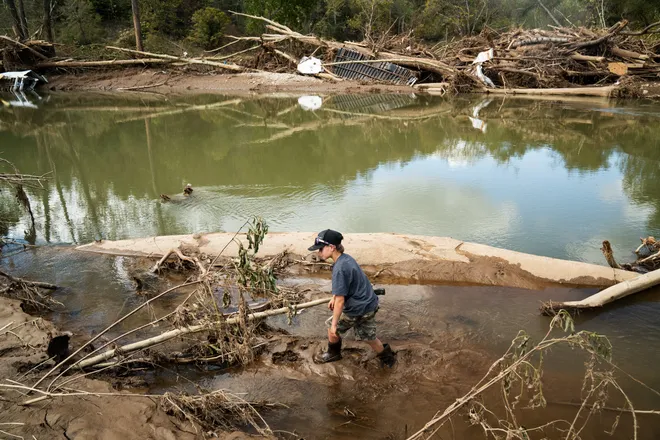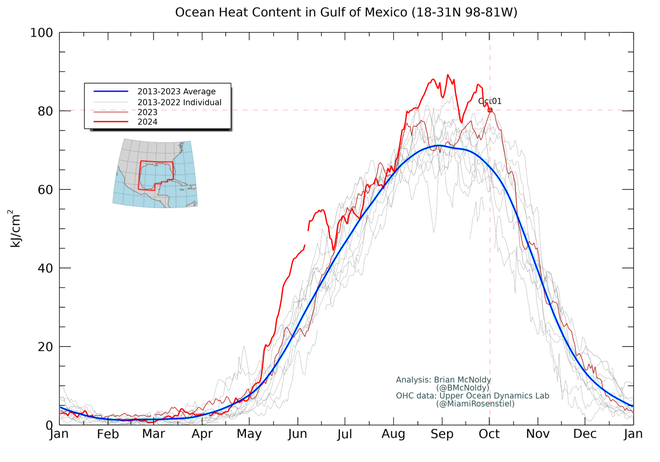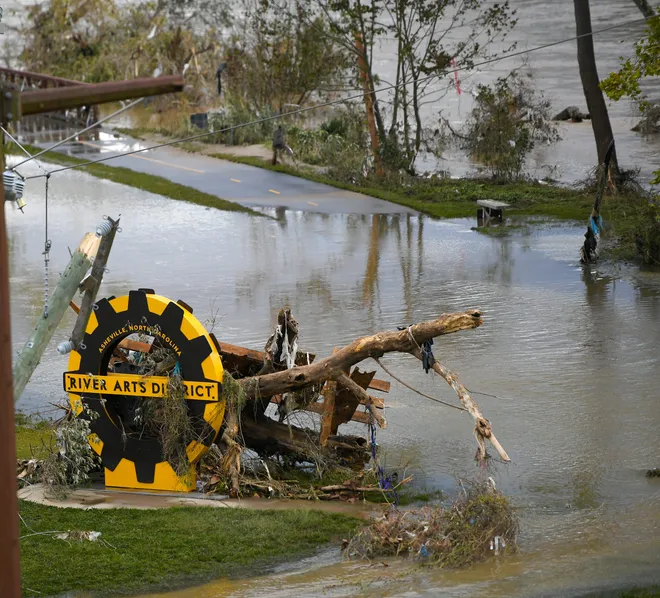'Devastating consequences': Climate change likely worsened floods after Helene
Flooding on some western North Carolina rivers blew past records set in 1916 as extreme rainfall amounts in the last week of September led to a rampaging slush of mud and debris.
Scientists said this week they see the unmistakable fingerprint of climate change in the flooding rain ahead of and during Hurricane Helene. Enormous rainfall totals took place over three days along more than 200 miles of the Appalachian Mountains from Georgia into Virginia.
At least 184 people have been killed by the direct and indirect effects of Helene's devastating trip across the U.S., most from the cataclysmic rainfall in the mountains.
In one provisional rapid attribution statement, a trio of scientists at the Lawrence Berkeley National Laboratory said the rainfall over the 24 hours Helene moved through was made "up to 20 times more likely in these areas because of global warming."
More deaths:Helene will likely cause thousands of deaths over decades, study suggests
"Our best estimate is that climate change may have caused as much as 50% more rainfall during Hurricane Helene in some parts of Georgia and the Carolinas," according to the statement by Mark Risser, Joshua North and Michael Wehner at the laboratory. Although the work used attribution methodology that the scientists have used in the past, they cautioned their initial assessment could still be adjusted.

Warm waters in Gulf of Mexico fuel extreme rain
As the Gulf of Mexico continues to experience record or near-record warm temperatures, scientists have repeatedly said it's supercharging storms with copious amounts of rainfall, leaving evidence that shows up in models that compare the hurricanes of today to hurricanes of the last century. They cite simple science that shows a warmer atmosphere holds more water.
They see it again in the immense rainfall inside and ahead of Hurricane Helene. Scientists saw the same fingerprint during Harvey, and again during Hurricane Ian.
Get Hurricane Helene alerts via text:Sign up to get updates about current storms and weather events by location
"We would expect that Helene rained more because of climate change," said Kevin Reed, associate provost for climate and sustainability programming at Stonybrook University, who's among many researchers studying how the warmer Gulf adds water to some hurricanes.
Another rapid assessment looked at total rainfall over the full three-day rain event and concluded it's likely the heat content in the Gulf contributed to both Helen’s rapid intensification and the exceptional atmospheric river that started on Wednesday, more than 24 hours before Helene made landfall. Together, those events caused extreme floods over the southeastern U.S.

The statement, which calls for additional study, was released this week by a group of scientists at ClimaMeter, a Europe-based group using a framework developed by a team at the Laboratoire des Sciences du Climat et de l'Environnement in Paris-Saclay. ClimaMeter conducted a rapid analysis based on historical meteorological information from the last 40 years, comparing low pressure systems.
The scientists found the "heavy rainfall from Hurricane Helene up to 20% more intense and the strong winds up to 7% stronger" than during the period from 1980-2000. Ocean oscillations in the Atlantic and Pacific also may have played a role alongside human-driven climate change, they said.
Mountain terrain, monstrous rain:What caused North Carolina's catastrophic flooding
"This extreme precipitation event was caused by the interaction of an off-the-charts atmospheric river driven by Helene from the Gulf of Mexico with the Appalachian mountain range," the ClimaMeter analysis explained. The lifting in the mountains "exacerbated the already extreme weather conditions."

Warnings from climate scientists
The ClimaMeter study came with a warning. "Without reducing greenhouse gas emissions, these events will strike larger portions of the U.S., affecting territories and communities that were previously sheltered from such phenomena," stated co-author Davide Faranda, IPSL-CNRS, France.

“Extreme precipitation in Hurricane Helene has been largely intensified by fossil fuel burning," Faranda said.
“Our analysis clearly highlights that anthropogenic climate change is amplifying the impacts of natural events that have always occurred, but now with far more devastating consequences," said study co-author Tommaso Alberti. "In the case of Hurricane Helene, the intensity of extreme rainfall has significantly increased due to fossil fuel emissions and these events will increasingly affect larger and previously less vulnerable regions."
Disclaimer: The copyright of this article belongs to the original author. Reposting this article is solely for the purpose of information dissemination and does not constitute any investment advice. If there is any infringement, please contact us immediately. We will make corrections or deletions as necessary. Thank you.





